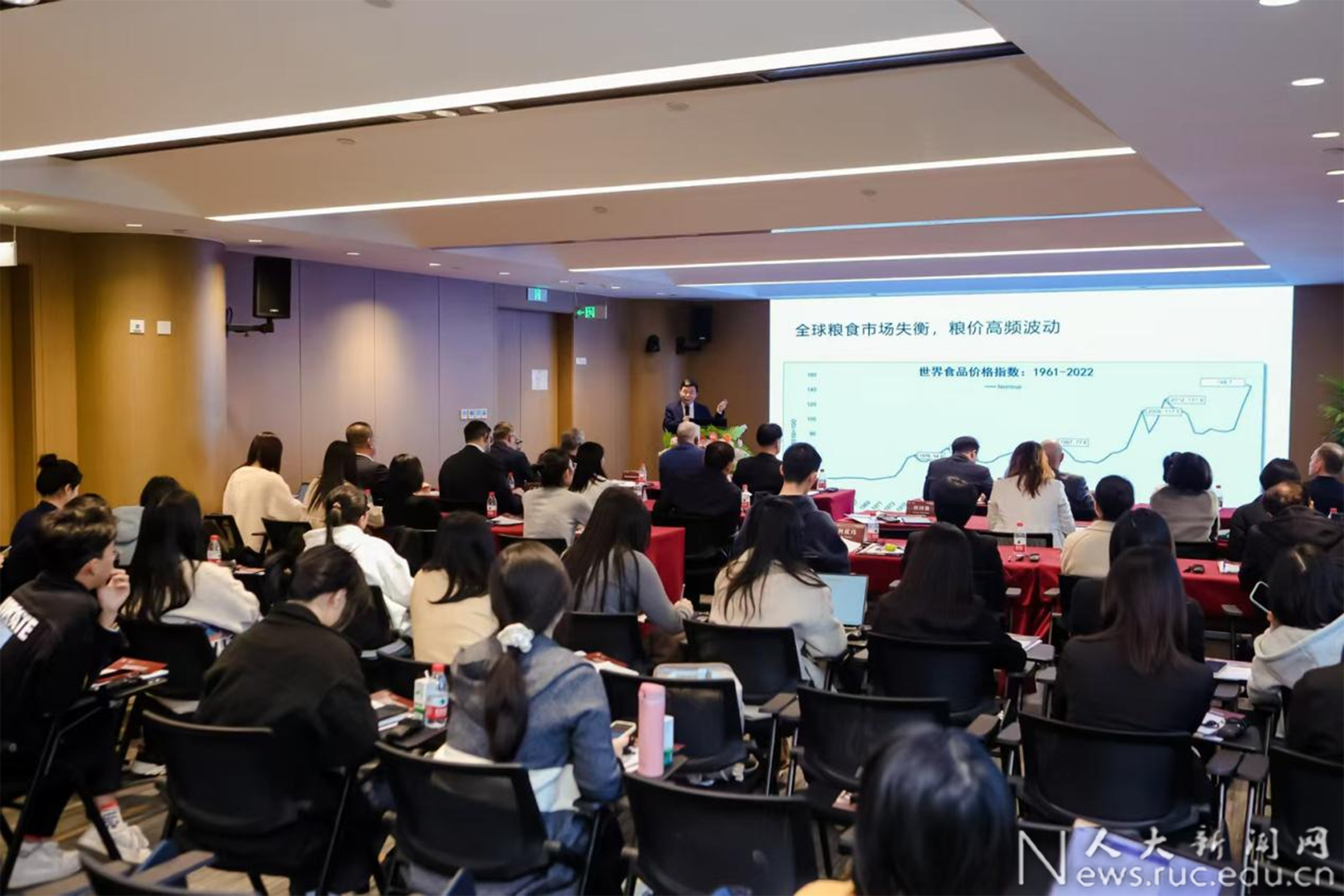On October 19th, the "Global Food System and Security" forum was held at the DBN Group, Haidian District, Beijing. As one of the sub-forums of the Tongzhou Global Development Forum (2024) hosted by Renmin University of China (RUC), this forum was co-organized by the School of Agriculture and Rural Development of RUC and DBN Group.
The forum brought together global experts, scholars, entrepreneurs, representatives from international organizations, diplomatic envoys in China, and media representatives to discuss the future direction of the global food system and its security issues, aiming to contribute wisdom and strength to the sustainable development and security of the global food system.
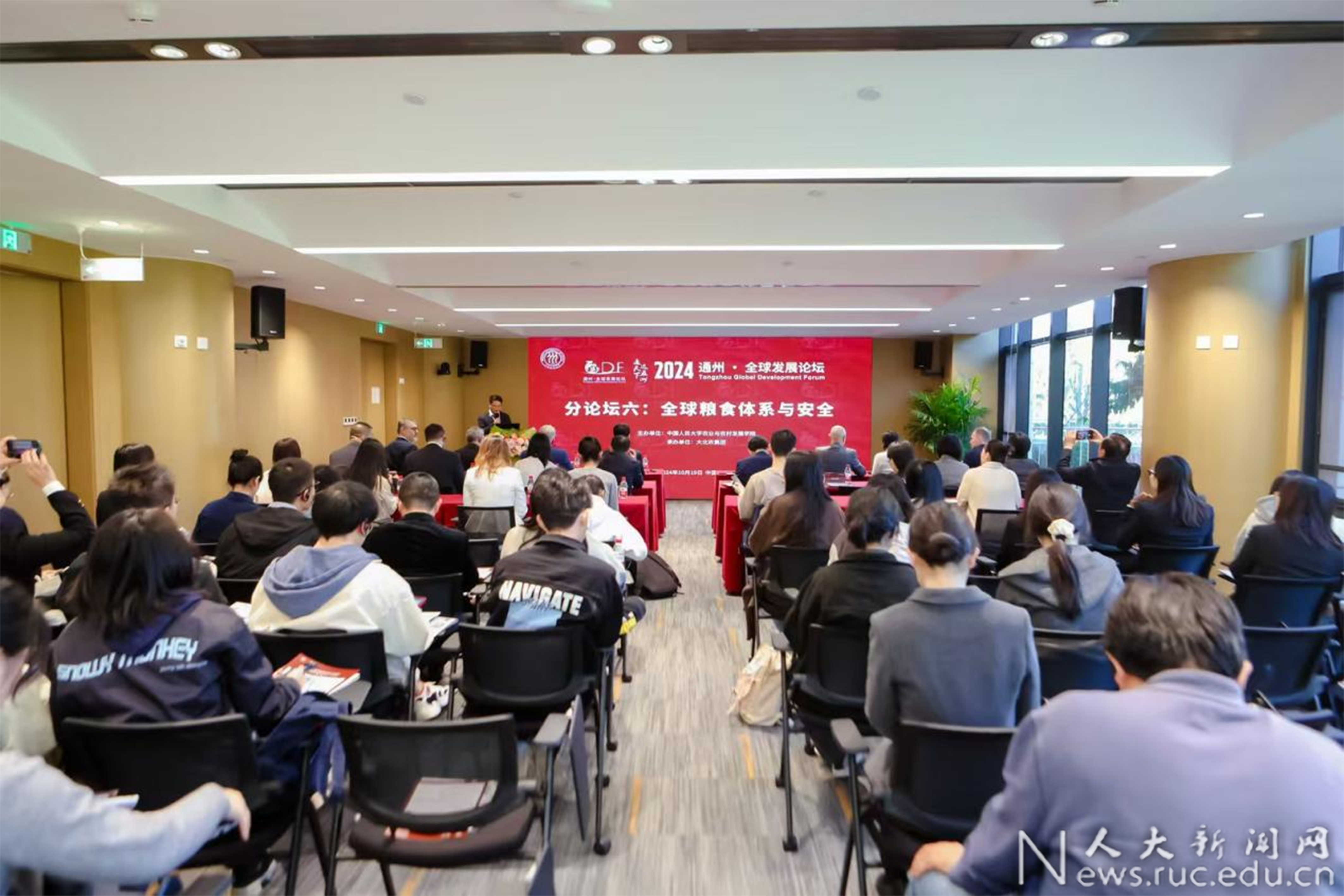
Zhu Xinkai, Executive Vice President of RUC, delivered a video speech. He pointed out that global food security is not only related to the right to survival and development of people in all countries, but is also one of the foundations for promoting sustainable development and achieving common prosperity worldwide.
“RUC will play an active role in research cooperation and exchanges on the global food system and security.” Zhu stated in his speech. He emphasized that RUC would focus on promoting interdisciplinary research on agricultural and rural management and agricultural technological innovation, and research on the stability and fair distribution of the global food supply chain, to share China’s successful experiences in poverty alleviation, promoting modernization of agriculture and rural areas, and ensuring food security.
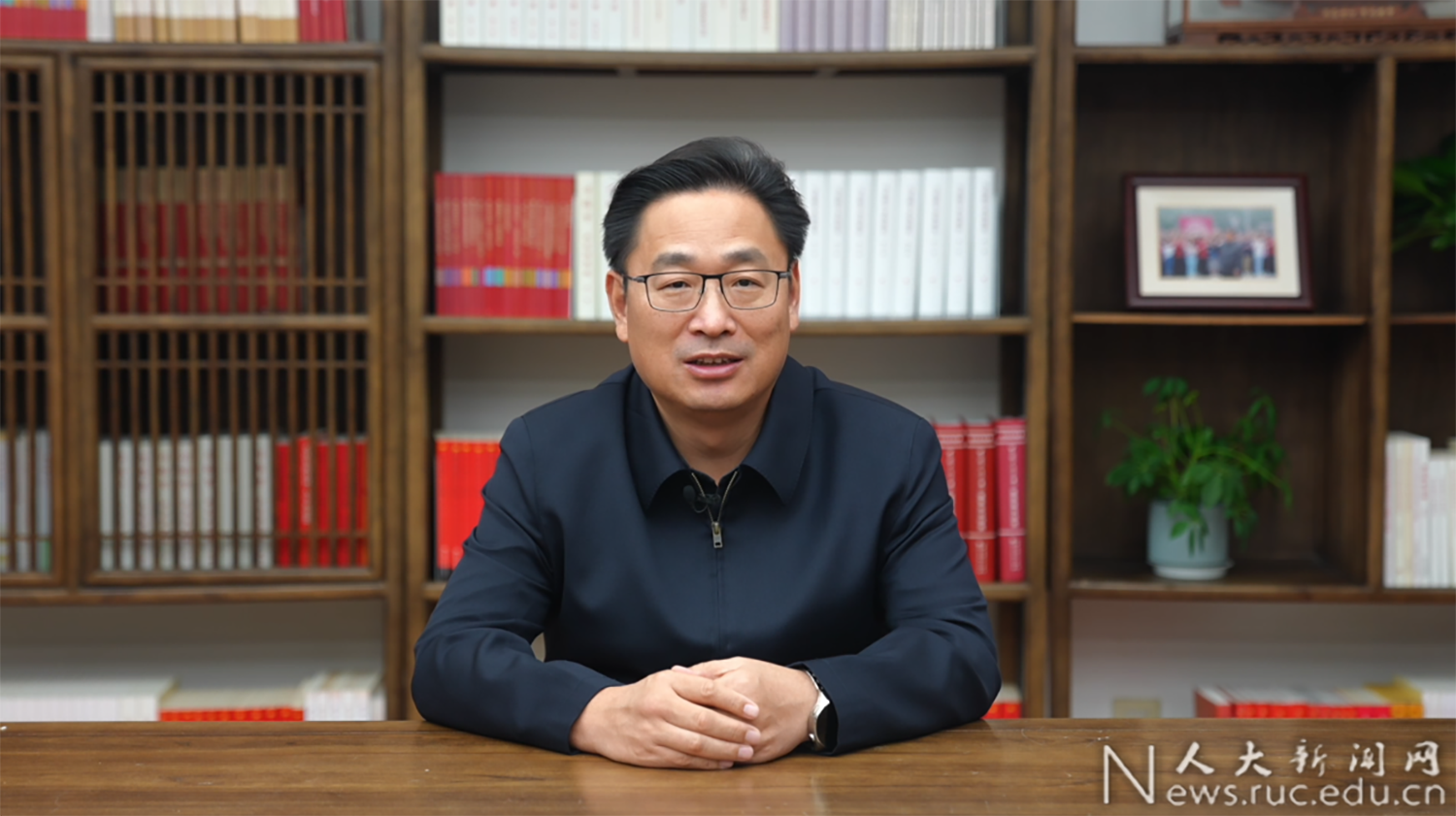
“RUC will contribute Chinese wisdom to help countries, especially developing countries, achieve the 2030 Sustainable Development Goals.” Zhu promised in his speech.
Mo Hongjian, Standing Deputy Secretary of the Party Committee of Dabeinong (DBN) Group, outlined the development process of Chinese agriculture and the contributions made by DBN Group to China's food cause and global food security. He emphasized that DBN Group will continue to adhere to the corporate principle of "Developing agriculture to serve the country, Working hard to be the best, Striving for joint development with others".
“DBN is committed to promoting the development of modern agriculture in China through technological innovation.” Mo stated, “Under the background of a new era of agricultural powerhouse, the importance of agricultural talent is becoming more prominent.” He argued that more agricultural talents are needed to take on responsibilities actively, accelerate innovation and improvement, and jointly create a beautiful future for a strong agricultural country.
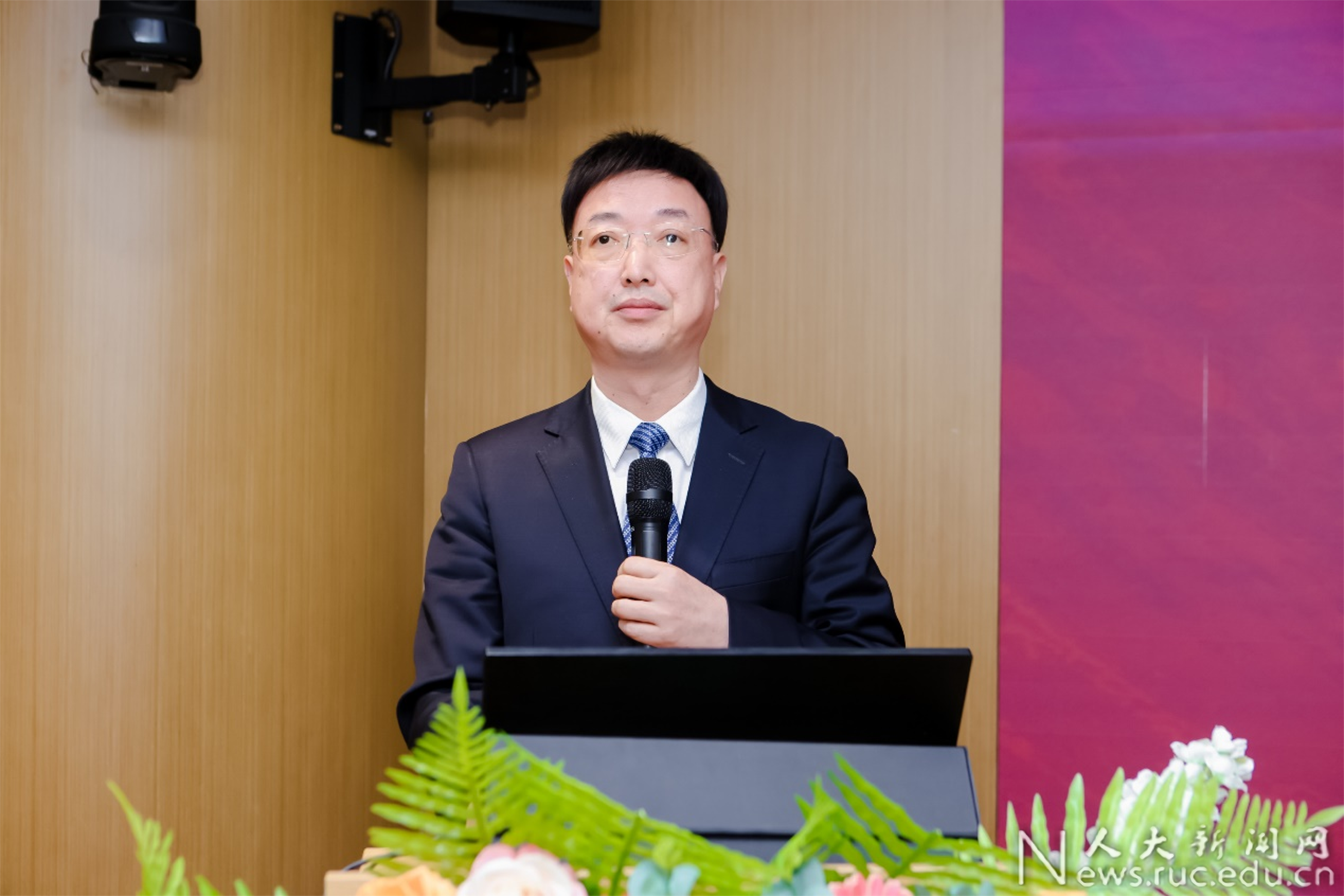
Pavel Castka, Professor of the University of Canterbury in New Zealand and Deputy Dean of the International Business School of Xi'an Jiaotong-Liverpool University, introduced the key role of technological innovation in food security and food assurance in his keynote speech. He proposed using satellite technology, remote sensing technology, and artificial intelligence to improve the efficiency of food quality testing and auditing.
Pavel Castka also suggested strengthening international cooperation and data supervision to meet the challenges faced by global food security. He believes that it is important to highlight the importance of technology integration in achieving the United Nations Sustainable Development Goals and to establish a safer global food quality assurance system.
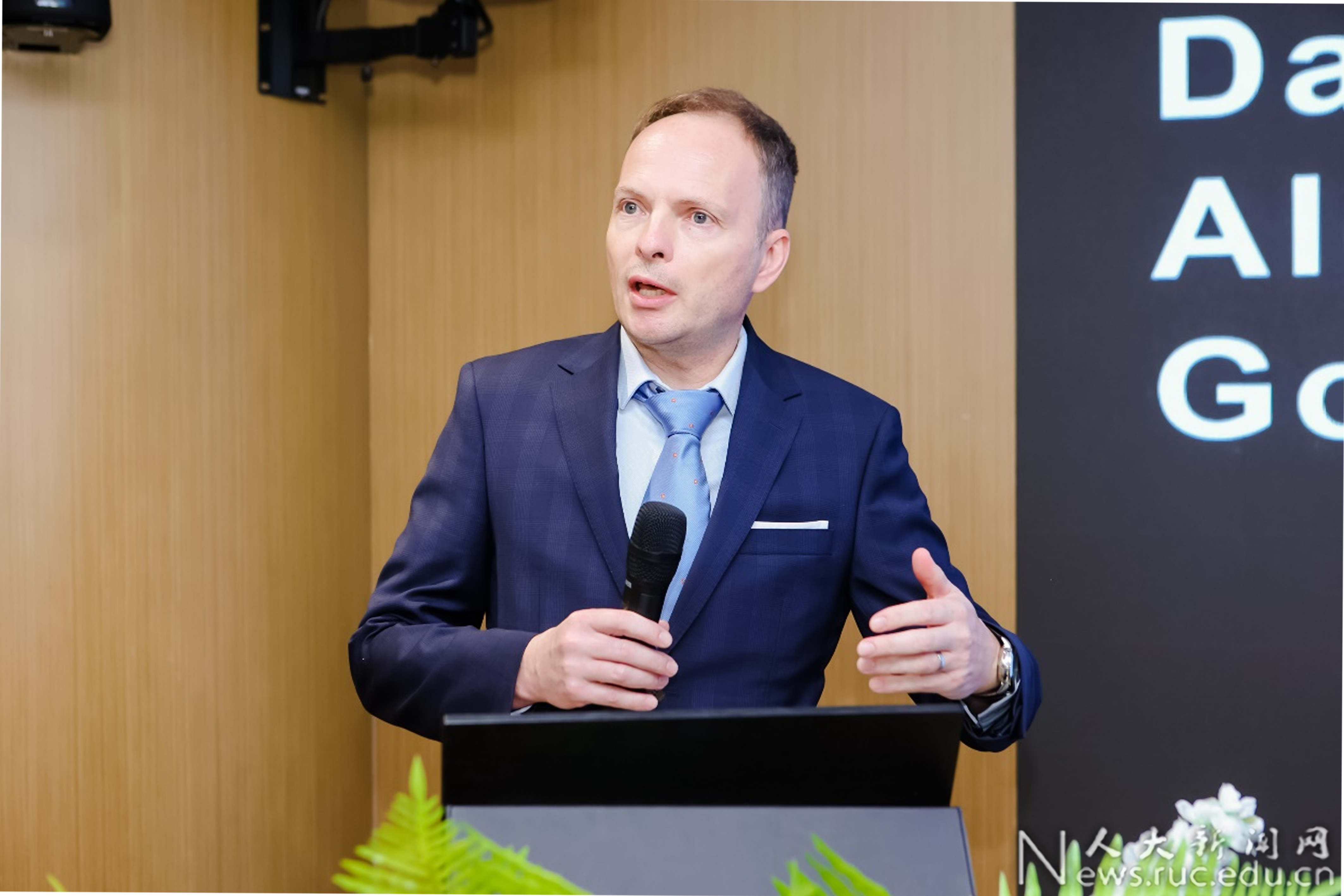
Robert Hanson, Minister-Counselor for Agricultural Affairs of the Embassy of the United States of America in China, reviewed the long history of friendly cooperation between the United States and China in the field of agriculture, and introduced the work of the United States in promoting food safety, improving agricultural productivity, and reducing food loss and waste. He believes that innovation plays a very important role in improving agricultural production efficiency and suggests that countries need to continue to cooperate in the field of food production to meet global food security and sustainability challenges.
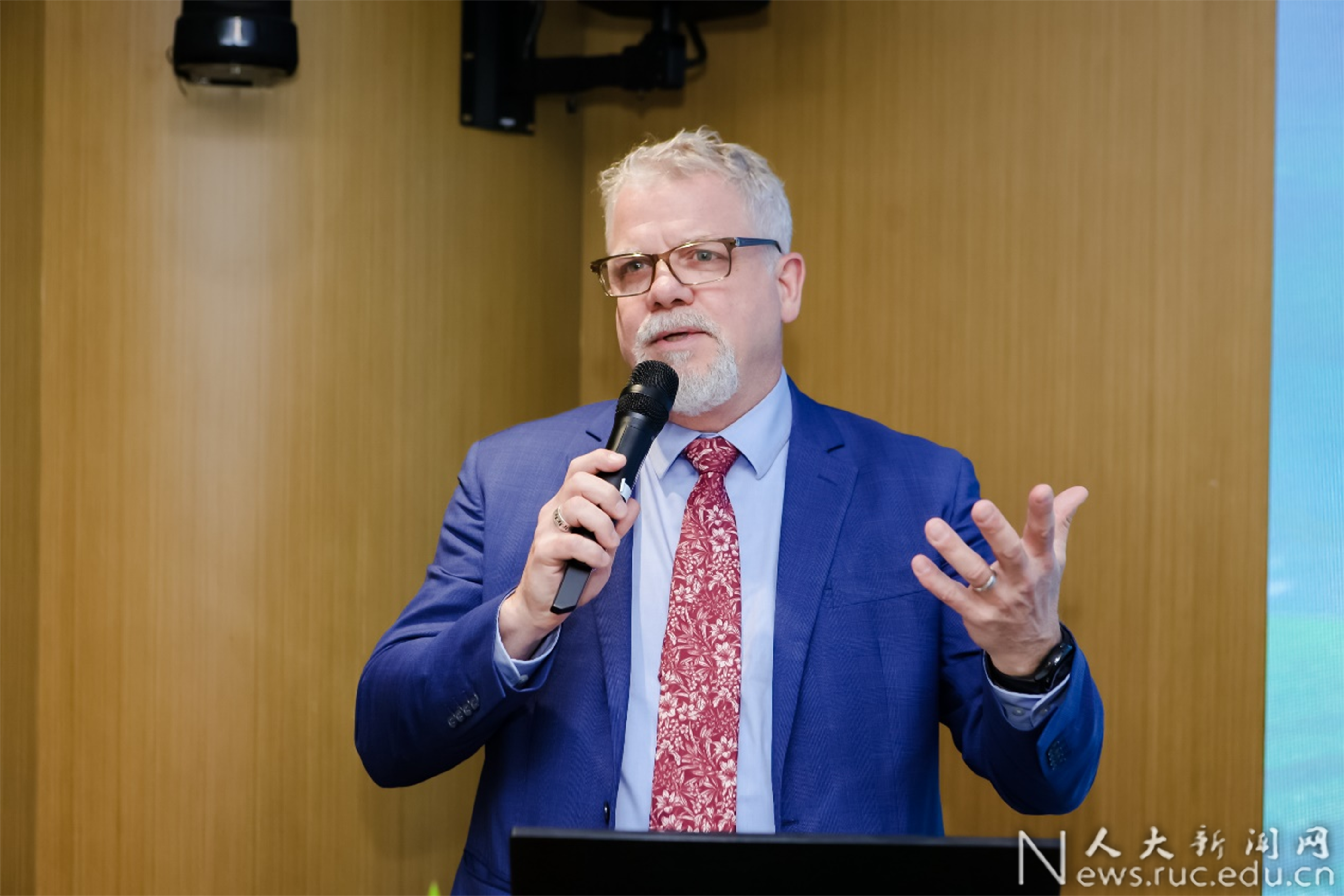
Adhinand Tina Kung, Minister-Counselor of the Embassy of Thailand in China, introduced the current state of development of Thai agriculture, believing that Thai agriculture is the cornerstone of the country's economy. Through export data of Thai agriculture, she analyzed the important contribution of Thai agricultural production to the global food supply. She stated that Thailand is committed to using modern agricultural technology to improve the quality of agricultural products and sustainable agricultural practices. Through international cooperation and knowledge sharing, Thailand will promote global food security and agricultural innovation.
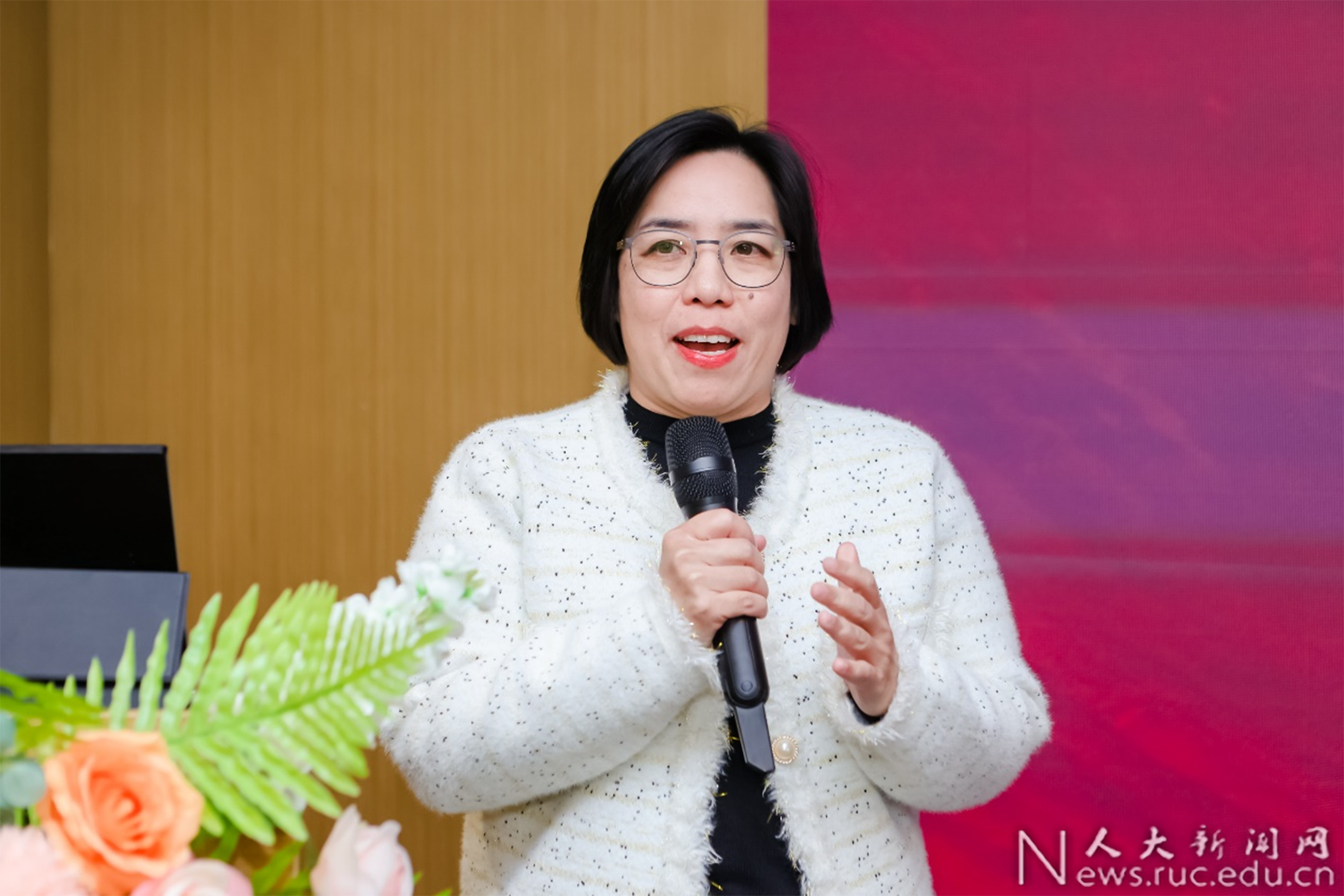
Maxim Berdichevsky, Agricultural Counselor of the Embassy of Canada in China, introduced the multiple challenges faced by the global food system, including climate change, population growth, and international conflicts. He argues that the international community should strengthen cooperation to address these challenges in an innovative and sustainable manner to ensure global food security. In the speech, He also emphasized the importance of sustainable agricultural practices and advocated a science-based free trade system to reduce waste and achieve sustainable development.
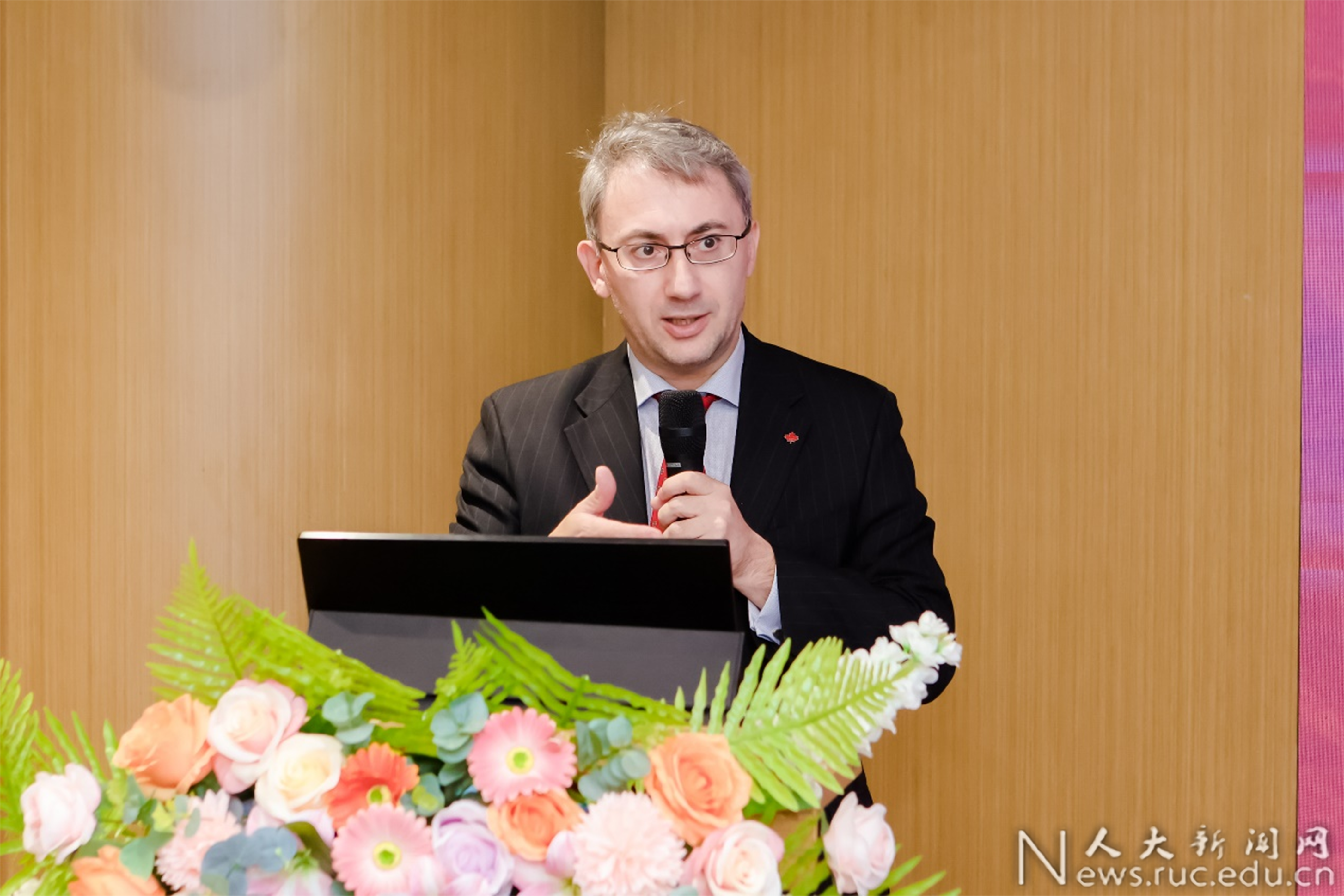
Anshuman Varma, Deputy Director of the United Nations Centre for Sustainable Agricultural Mechanization, emphasized the importance of agricultural technology innovation in improving food security and addressing climate change. He mentioned the role of agricultural mechanization in supporting small farmers, improving production efficiency and quality, and suggested that policymakers strengthen international cooperation and public participation to promote agricultural transformation and achieve sustainable development goals.
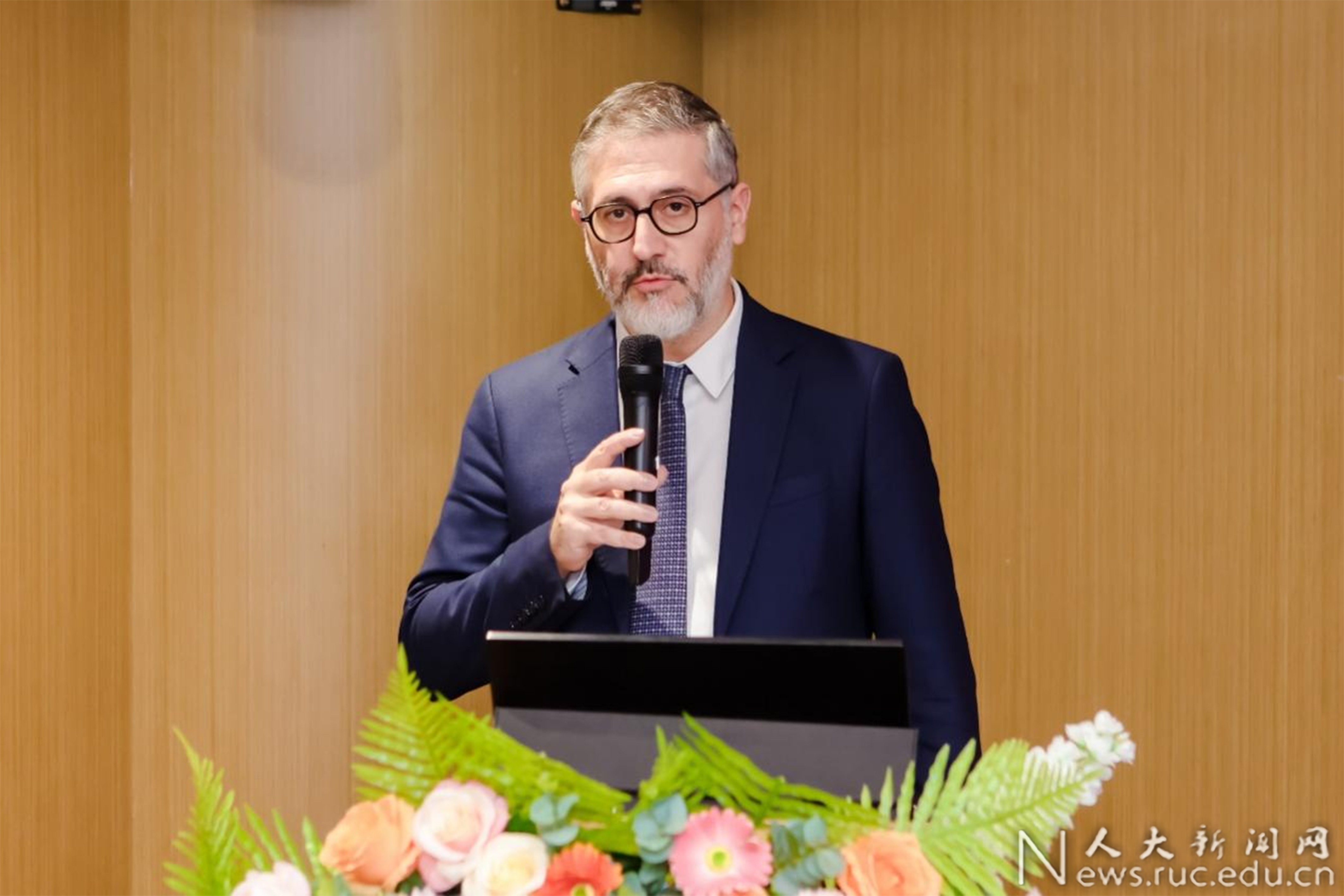
Tang Yuanjie, Former Party Secretary and President of Farmers Daily and Executive Dean of the China Rural Revitalization Research Institute of Renmin University of China, emphasized the importance of improving China's long-term food security mechanism. He proposed the need to strengthen the political and interest security mechanisms for food safety, including the implementation of a joint responsibility system for the Party and government, the establishment of a food safety responsibility list, strengthening policy support, and promoting the enthusiasm of stakeholders at all levels of the industry chain to ensure national food security and sustainable development.
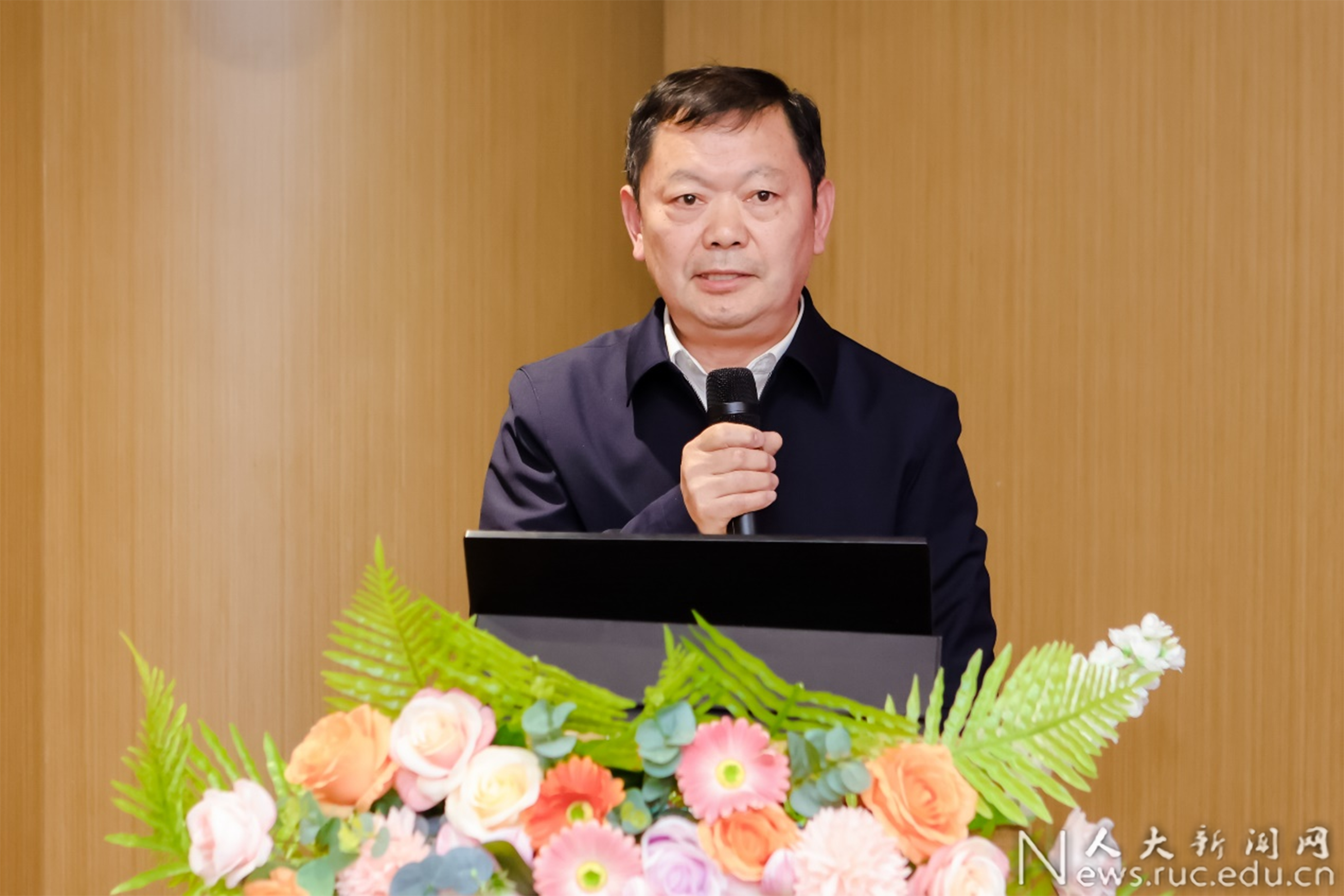
Cheng Guoqiang, Dean of the National Food Security Strategy Research Institute of Renmin University of China, introduced the severity of the global food security situation. He also discussed the causes of global food security issues, including the relatively lagging development of agriculture in developing countries, structural imbalance in the global food market, and high-frequency fluctuations in grain prices. He proposed that the globe should deepen paths to improve global food security cooperation, and international cooperation is needed to solve food security issues.
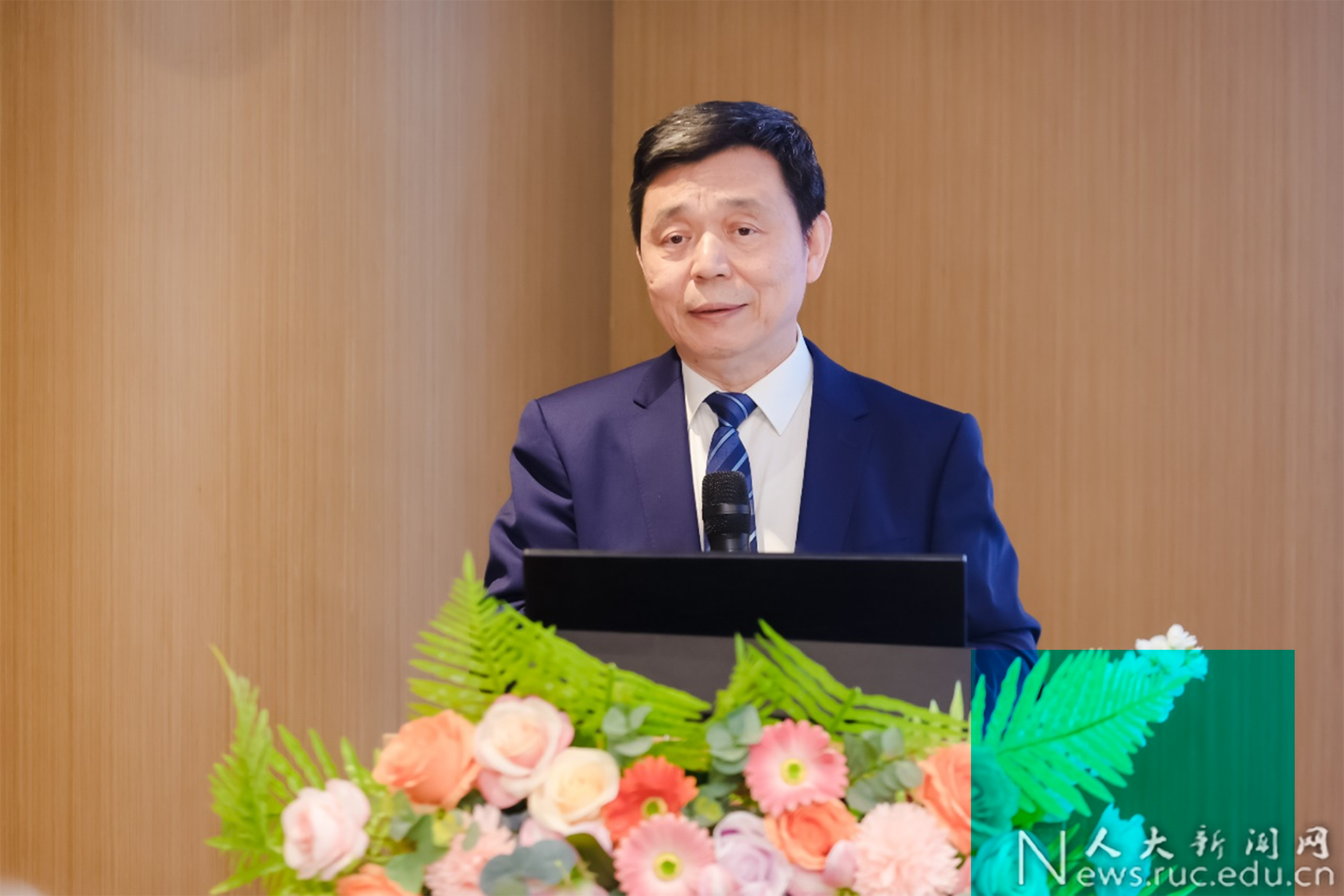
He Xinwei, a representative of the "DBN Scholarship" award-winning students and a doctoral student from the class of 2022, introduced the research results of "Building a Strong Foundation for an Agricultural Powerhouse: China's Food Security under the Broad Food Concept."
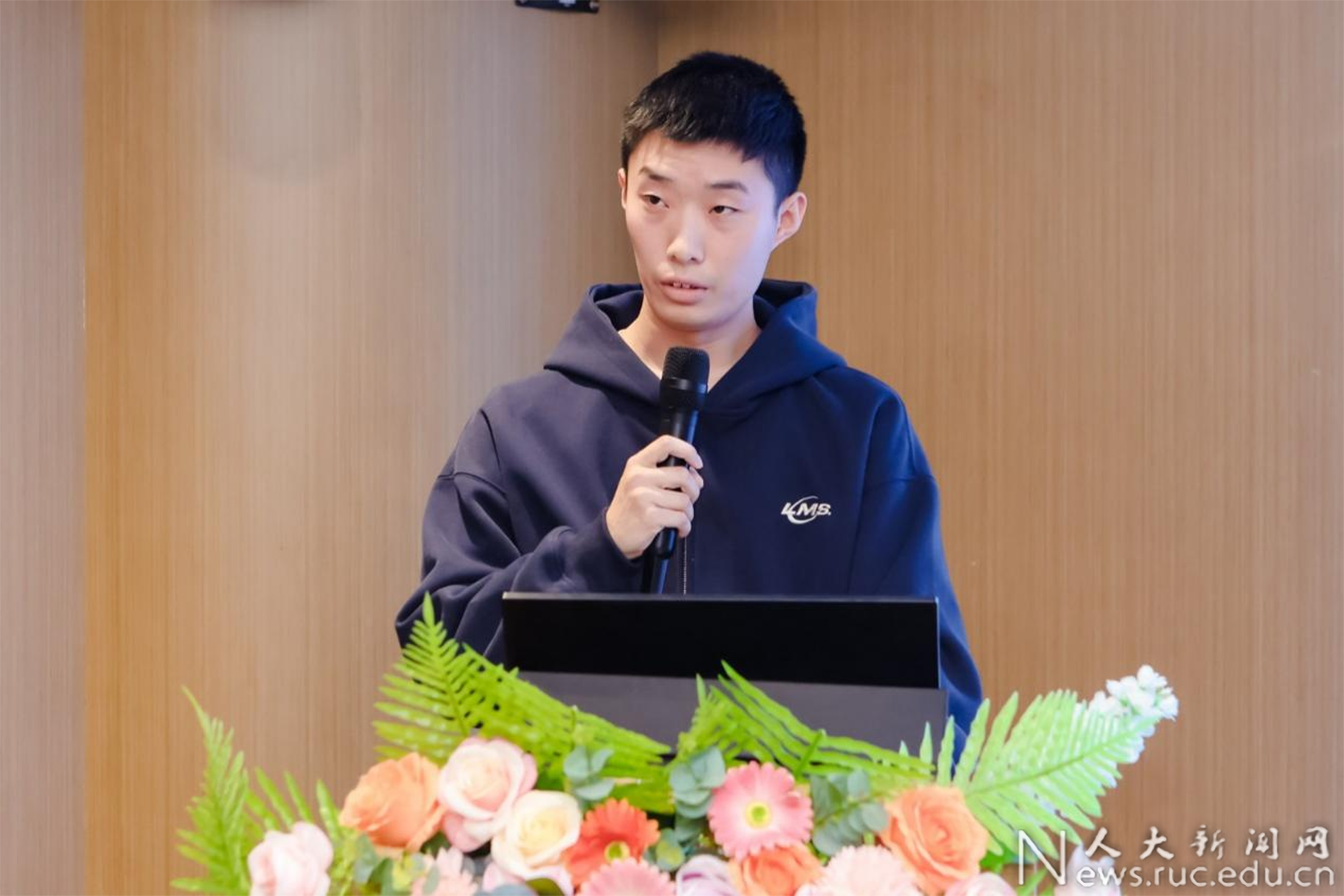
The forum was not only an academic exchange platform, but also an opportunity for international cooperation. Through in-depth discussions and sharing of best practices, participants explored how to improve the resilience and sustainability of the global food system through innovation and cooperation to address challenges such as climate change, population growth, and resource constraints, and jointly contribute to achieving global food security and sustainable development goals.
